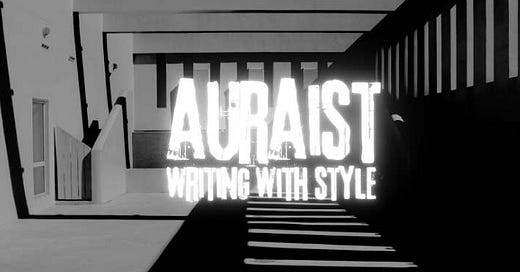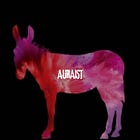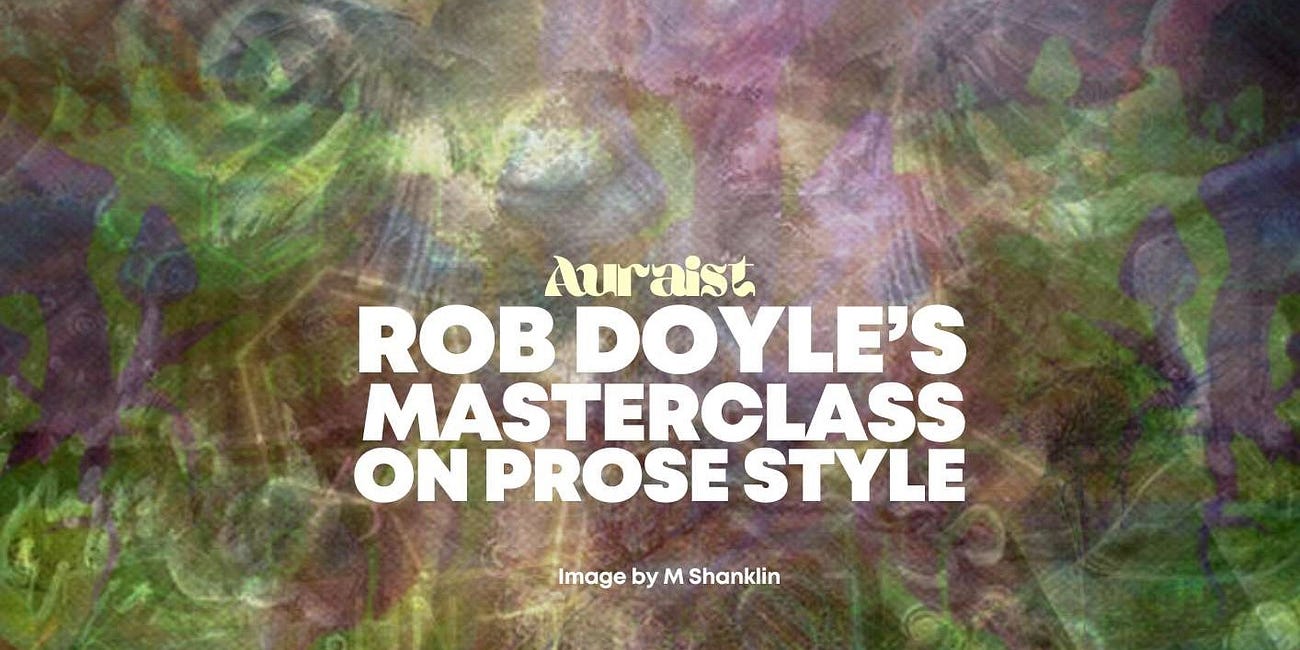July's literary prizes: the best-written books
Links to three new picks. Plus authors discuss whether AI will ever write beautifully.
Many readers who completed our survey said they were finding our posts too long. That’s why we’ve split the picks into separate pages.
The 2025 Dagger Award for best crime novel
Our pick of the best-written work on the shortlist is here»
The Dagger Award for best translated crime novel
The 2025 Wales Book of the Year
Our pick of the best-written novel is here»
At the above links you’ll find:
The opening pages of our picks. Make up your own mind about the quality of the prose.
The full list of the books we considered.
Information about submitting to Auraist. If we publish your work, we’ll invite you to answer our questions on prose style. Your answers will be considered for inclusion in the published collection of these answers by many of the world’s best writers.
Between them, the Substacks we recommend receive over a thousand new subscribers that way every month. If you recommend us on Substack, we’ll reciprocate if your publication is likely to interest our readers.
Please consider completing our reader survey or clicking the Like (heart) button to help spread the word about the only publication set up solely to champion beautiful prose and battle the Replicant Voice.
On Friday we published for paid subscribers our pick of the best-written book of the month.
Best-written books of the century
Recommended Substacks
Guides to prose technique
‘What were the first books you read where you realised you were enjoying the quality of the prose? Without being prompted to copy the style, could AI ever write as well as this?’
Francis Spufford
I read compulsively as a child, but without being aware of what the writing was doing as writing. In fact, without wanting to be aware of it. My ideal as a reader was total immersion in story, with the prose that achieved that for me behaving as a transparent and indetectable fluid you didn’t have to pay any attention to.
I think the first book where I noticed the written language as such – and noticed that it was decisive to my pleasure – was probably Ursula Le Guin’s The Left Hand of Darkness, borrowed from a library when I was about fifteen. Here’s the opening paragraph – I’ll check the quotation before sending it to you, but I can give a first-draft quote from memory.
I’ll give my report as if I told a story, for I was taught as a child on my homeworld that Truth is a matter of the imagination. The soundest fact may fail or prevail in the style of its telling: like that singular organic jewel of our seas, which grows brighter as one woman wears it and, worn by another, dulls and goes to dust. Facts are no more solid, coherent, round and real than pearls are. But both are sensitive.
It probably helped that this was explicitly a narrator telling fifteen-year-old me that it mattered how what followed was going to be delivered. But it mattered more that it was written in a voice. A first-person voice, preternaturally clarified and more formal than a casually speaking voice, as the very first step of the book’s dance with the languages of anthropology and diplomacy; but, still, the voice of an ‘I’ talking to me, and talking very deliberately, and talking unmistakeably in rhythm.
My ear was awakened. ‘Report’ rhymed with ‘taught’! ‘Fail’ rhymed with ‘prevail’, and was put next to it as its opposite to make sure I noticed! ‘Singular organic jewel of our seas’, the stately roundabout way of naming what I didn’t understand was a pearl till I was told so in the next sentence, was doing something with its row of long vowels that was almost submarine in itself. Meanwhile, as many words as possible were only one syllable. And oh the comma after the ‘and’, and not before it. I hadn’t known that punctuation, humble old punctuation, could strut and brace a sentence to make fine differences of effect. In this case, rearranging the pauses around ‘worn by another’ so that the emphasis hit ‘dulls’ that little bit harder, and put it into more apparent contrast with ‘brighter’. I was hooked.
I was hooked, and after that, when re-reading other books I loved, I began to see that they too were made of words. Kipling’s Puck of Pook’s Hill was brilliantly layered, a palimpsest of mimicked voices, and also rhythmically deliberate in every sentence. C S Lewis’s Narnia books, which I had inhaled as a child as a stream of pure sensation, were in fact constructed from economical bursts of intense description held within a voice that was sympathetic, unpatronising, and surprisingly logical.
AI’s can’t do either the exquisite conscious-attention-drawing surface or the clear, pure, transparent verbal pane, because both those things proceed from a communicative act. There needs to be a mind there, deciding on a purpose for writing – an end – and then on the means to that end. AI’s offer only a generic remix of the existing state of the art – its conventions, its likeliest moves, understood as a set of probabilities. They cannot make a judgement about what to say or how to say it. They cannot do a new thing.
Unfortunately, what I fear they can do is to bugger up the process of laborious apprenticeship by which human beings learn to do a new thing in writing. You can’t get good without first being crap, being mediocre, and being competent at writing. And how many people will be willing to undertake the effort, and let’s be honest the embarrassment, of going through those necessary early stages, when a machine can produce something resembling competence with no effort at all?
Read on at the link below.
Browse all our guides to prose technique »
Rob Doyle
When I was twenty I read Vladimir Nabokov’s Lolita, which I’d been aware of as a classic in the sense that I assumed it would be fusty and arduous. And then the prose was immediately this incandescent, irrepressible force — of intellect, sensuality, cynicism, wit. I’d never read anything like it — I think it changed my brain, somehow. It wasn’t only the novel itself: Martin Amis’s introduction likewise exhilarated me. Amis would become one of my early style heroes. I’ve never gotten far with anything else I’ve tried to read by Nabokov — I tend to find his prose cloyingly ornate — but Lolita is style on fire.
When I first read it, this pair of sentences from Martin Amis’s novel Money was a revelation in comic concision:
“Yeah,” I said, and started smoking another cigarette. Unless I specifically inform you otherwise, I’m always smoking another cigarette.
There isn’t too much to say here because all that’s good about the quotation is so self-evident. Above all, it’s funny, and, as Amis’s late friend Christopher Hitchens liked to remind us (he was quoting Clive James), humour is just common sense, dancing. It’s also a brilliantly economical means of conveying so much about the narrator, John Self — his greed, his bottomless appetite, his brusqueness, his laziness.
Could AI ever write as well as Nabokov? Not a chance. I haven’t read a single paragraph of prose that’s come out of AI that hasn’t repelled me with its insipidity. I don’t think artificial intelligence has anything to offer the game I’m in, which is literature. AI isn’t a threat to imaginative writers, but it is an aesthetic irritant (that’s what the initialism really stands for). The world is already deluged with dead language — inane, stupid, ugly, corporate — and I expect AI is going to multiply that.
Read on at the link below.
'Writers who don’t obsessively polish their writing must be made to walk the plank.'
Rob Doyle's third book, THRESHOLD, was published in 2020 by Bloomsbury, and was shortlisted for the Kerry Group Irish Novel of the Year. Doyle's debut novel, HERE ARE THE YOUNG MEN, was published in …
Coming soon we have the best-written recent releases, and more authors answer our questions on prose technique. Plus more selections from our subscribers’ submissions.
Our archive has dozens of author articles on prose style, hundreds of picks from recent releases and prize shortlists, and the best-written books of the century. A paid subscription gives you full access to this archive.
Thanks for reading Auraist and purchasing the books we recommend, to help to support fine writing.
Sean McNulty











